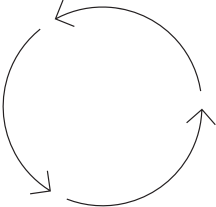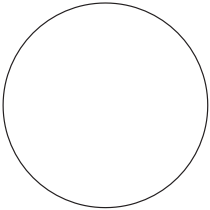Recycled
 Recycled
Recycled
Amara Tulum
Our Italian fabric is manufactured in a green energy facility that works to reduce pollution, protect green spaces, preserve water, and monitor gas emissions. Made up of two game-changing fibers. ECONYL® is created with regenerated nylon recovered from our oceans through The Healthy Seas Project, helping to remove tons of plastic waste and save marine life. Add in LYCRA® XTRA LIFE™ for a timeless bikini that's built to last.
We're giving back to our community too. Designed in Tulum and made in Mexico by local artisans, AMARA pledges to support Mexican communities by creating livable-wage jobs, minimizing negative impacts of tourism, promoting cultural exchange and helping to preserve local traditions. We also organize beach cleanups in the Sian Ka'an Biosphere to help protect wildlife from the plastic washing up ashore.
Clare Bare
How we make it
Fabrics:
Most of our styles are made from upcycled vintage fabrics in limited editions. I mostly source these fabrics on trips to the desert where all the good stuff hasn't already been picked through. I look mostly look for cotton prints from the 60's & 70's, but also look for stretch fabrics in the vintage lingerie section, and silk scarves with beautiful prints. There is so much joy that comes from finding a few yards of something really special! I truly believe that repurposing materials that already exist in the world is the most sustainable way to bring anything new into being.
We are lucky enough to have a local supplier and manufacturer for our eco friendly fabrics. We used Bamboo Jersey for years, but have recently switched to Lenzing Modal for our jersey pieces. The production process is more sustainable and the fabric is more durable and long lasting, while still biodegradable. Modal is a cellulose fiber made from reconstituted cellulose from beech trees that multiply by "rejuvenation" which means that the trees propagate by themselves. No artificial irrigation or planting is required, thus beechwood forests are a completely natural and sustainable source of raw material. We are aiming to start using Tencel, but are still on the hunt for the perfect blend.
We also use silk, satin, organic cotton, and remnant fabrics that are sourced locally. We plan to evolve with the fashion industry as innovations in sustainability are made.
Elastics & Hardware:
Our strap materials are mostly new and purchased from our local supplier. Occasionally we use remnant elastics from larger manufacturer orders, or deadstock vintage elastic and hardware in special colors.
Dyes:
Besides black and off white, all colors are hand dyed. We use the following organic dyes: Brazilian Logwood (purples, blacks) Indian Lac (pinks, reds) Caribbean Plants (teals, blues) Osage Orange (yellows.) Indian Lac is sourced from the excrement of the Cochineal insect rather than using the actual insect itself, but we can provide a synthetic alternative for vegan customers who would prefer us not to use this dye.
Galamaar Swim
No detail is too small to consider; from our made in LA pad inserts, recycled hang tags, regenerated mixed metal hardware and eco-packaging materials, we do our best to minimize our negative impact. The biggest player in the process is our amazing sustainable techno-fabric made of nylon from discarded fishing nets that account for nearly 10% of all ocean pollution. Not only does our fabric have waste-to-wear properties, but also it's engineered to last a very long time with amazing fit retention. Combine that with our quality construction and you’ve got one long lasting swimsuit.
All of our products are proudly made in Los Angeles, California.
Irthly
Irthly plays a role towards sustainability by using recycled or eco-metals as much as possible. We use Harmony Metals from Hoover & Strong wherever applicable. All of our diamond suppliers are Kimberley Process compliant, which is a certification system that prohibits the trading of diamonds from war-torn regions. Most of our gems are fair trade, meaning that we can confirm that the supplier and gem cutters are practicing fair trade protocol. In terms our own production, we are not involved in any overseas production. Everything is proudly produced in Los Angeles.
Jessica Redditt
Reclaimed and natural textiles hand-dyed with pigments from plants.
Kamba
In 2019 the brand are making an ongoing commitment to focus on more ethical, resourceful and conscious practices. Prioritizing reducing waste, transparency through the supply chain and where possible supporting British trade.
The latest collection showcases the use of premium recycled fabric, made from fishing nets and plastic waste found in our oceans.
Nette Rose
Fabric, We keep things limited.
Lace we design and produce is done in limited numbers and we choose to rather sell out than have wasted fabric added to landfills. Because we all know that those landfills are looking pretty stocked up already.
Fabric off cuts in studio? Yep they are unavoidable but they have not left our studio - we are stocking up and hoping to upcycle it all into something lovely.
Our thread
We think about the little things, right down to our thread which holds our intimates together, and the company we source from does it with sustainability in mind.
We source from a South African based company who have a zero landfill policy, utilize solar energy from our warm South African sun and have since planted 1000 olive trees to help reduce the greenhouse gas CO2 from the air and offset their emissions. How cool are they?
Packaging
All orders are delivered in our delicately scented beautiful bags, with a handwritten postcard and wrapped in an environmentally friendly tissue paper sealed with a whole lot of love (or what looks like a pretty cream and gold sticker)
Our packaging bags are handmade in our studio to keep to our standard of quality from product to packaging.
Pala Eyewear
Recycled and artisanal made cases
We’re as proud of our sunglass cases as we are about what goes into them. Each is uniquely handmade by a traditional weaver from one of three rural communities in Bolgatanga, Upper East Ghana. As Pala grows, more people are being taught to weave, creating a new source of income for themselves. By recycling plastic we access a readily available material, rather than the more traditional straw which is limited by seasonality. The plastic for our cases could have been many things in a previous life – a plastic bag, a discarded water sachet, plastic used to bind pallets, or even discarded from the plastic bag making process. This waste is collected, washed, melted and re-purposed into the plastic that is then woven into our unique cases. Rubbish? We don’t think so.
Packaging
Our boxes are FSC MIX certified, from responsible sources. All our print materials come from recycled paper stock. Where you see our eyewear in a shop all supplied point of sale materials that we have supplied are made from recycled wood or cardboard.
Committing to offsetting our CO2
We know that getting a pair of our sunglasses to you has an environmental impact. Therefore for every delivery we make to a customer we put £1.00 towards offsetting the CO2 cost of that delivery. As a business we also have to fly in elements of our product from around the world. We therefore offset those journeys along with all flights the Pala Team make in bringing our stories back to you as well as any events we might attend. We work with not-for-profit Atmosfair to offset our C02 through the financing of Wonderboxes in Nigeria and Rwanda. These incredible cooking pots will retain heat for a very long time, therefore reducing the need to burn fuel for heating and thus lowering the CO2 emissions.
Giving back
We provide grants directly to eye care projects in Africa. Projects might include building a new Vision Centre; or dispensary, purchasing equipment or supporting an outreach program – all sustainable, long term solutions that facilitate eye care, eye-tests and provision of spectacles.
Swedish Stockings
Our mission is to change and influence the entire hosiery industry. Nylon yarn, which is currently used to produce most modern pantyhose, is created from an environmentally harmful petroleum-based manufacturing process that leads to damaging carbon emissions. More-so, modern pantyhose isn’t made to last. These harmful practices in the fashion industry are all too common. We believe the world needs more innovative and environmentally conscious products to lead the way, and so Swedish Stockings was launched.
We create our pantyhose from both pre and post-consumer nylon waste. The production process is a lot less harmful to the environment than traditional nylon production and we are consistently looking for innovative and cleaner ways to produce - conserving or reusing water, decreasing emissions, reducing and recycling waste. From this highly efficient recycling procedure we have reduced energy and water consumption. We also have a recycling program you can read more about here. We estimate, thousands of stockings have been recycled thanks to our recycling program. Read more about our sustainability efforts, materials and production in our sustainability edit.
 Our production is powered by the sun and renewables
Our production is powered by the sun and renewables We produce from recycled and sustainable materials
We produce from recycled and sustainable materials Water used in the dyeing process is purified after use
Water used in the dyeing process is purified after use Our factories are zero-waste
Our factories are zero-wasteTiffany Kunz
Intrigued by the deconstruction of shapes, repetition and texture, Tiffany designs environmentally conscious pieces of jewelry. Her collections are cast from locally sourced, reclaimed metals, and accented with certified fair trade stones, which are then finished by hand in her studio in Los Angeles, CA. She strives to create artful pieces in an ethical and environmentally responsible manner. All her supplies, from pricing tags, look books and business cards to shipping parcels and jewelry pouches, are made from renewable resources or recycled materials.
Vow London
Social Responsibility:
Our frames are manufactured in socially responsible factories that meet the criteria set out by the internationally accepted Ethical Trading Initiative. We visit our factories on a regular basis ensuring our auditing (BSCI) standards are met and all people involved are treated with fairness and respect. Our long lasting relationships with our factories are built on trust, and a devotion to creating an excellent product.
Environmental responsibility & quality:
We design and manufacture high quality eyewear using a variety of ethically sourced sustainable materials. Including Black Recycled Acetate, Biodegradable Acetate, FSC Approved Acetate, Biodegradable Glitter and Eco Acetate which is a renewable, plant based material made from wood pulp and without chemical plasticisers which makes them very low in phthalates which is better for the environment and the wearer.
